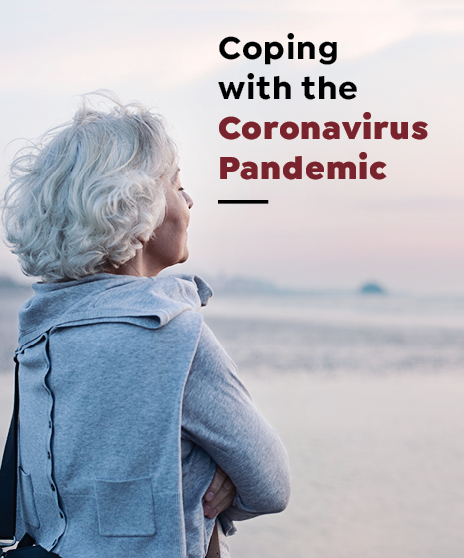How to Prioritize Self Care for Positive Mental Health.
In a year of uncertainty, there is no doubt that the coronavirus pandemic has affected thousands of lives. According to the Center of Disease Control and Prevention (CDC), 40 percent of US adults reported struggling with mental health or substance abuse during late June 2020. Of those adults, 31 percent had anxiety and depression symptoms. Situations such as loss of a loved one, fear of infection, financial insecurities and disruption of daily routines have been some key causes of mental strain during the pandemic. Until the COVID-19 vaccine becomes more widely available, it is important to prioritize self-care. Here are some tips to improve your mental well-being as we continue to take small steps towards a healthier tomorrow:
Physical Health
Even with the rollout of vaccines, it is still crucial to continue following CDC guidelines. Doing so will slow down the spread of the virus and will ease the burden on yourself, your loved ones and health care workers.
Protect yourself and others by continuing to:
- Wear a mask or face covering.
- Stay at least 6 feet (about 2 arm lengths) from others who don’t live with you.
- Avoid crowds. The more people you are in contact with, the more likely you are to be exposed to COVID-19.
Get Vaccinated
Being vaccinated will help prevent serious illnesses and deaths. When a person gets infected with coronavirus, they run the risk of becoming very ill or getting a loved one sick. The CDC has outlined the different phases for vaccine, which vary by state. We encourage you to follow up with your local health authorities to determine when you can receive the vaccine in your community.
Here are the Five Things You Need to Know About the COVID-19 Vaccine when you are ready to get yours.
Mental Health
If you have felt overwhelmed, anxious or depressed during the pandemic, you are not alone. COVID-19 safety precautions such as staying at home and social distancing can lead to feeling isolated and can increase stress and anxiety. Learn how to manage stress in a healthy way with the following tips:
- Talk to a trusted source. Whether it be a family member, friend or professional, make sure you have someone to open up to. Don’t be afraid to express your feelings.
- Focus on what you can control. The pandemic has brought on a lot of uncertainty, so don’t sweat what is out of your control. Shift your mindset to what you have power over and appreciate what’s in front of you.
- Take on a new hobby. Discover activities that stimulate your mind and that you enjoy doing. Learn to play a new instrument, create a garden, cook or bake something new, etc.
- Exercise regularly. Being active helps the body function, plus you get more sleep and feel better. Take 15-30 minutes a day to stretch or perform moderate-to-vigorous physical activities, which will help release stress.
- Eat well. You can help your body feel good by eating a well-balanced diet. Drink plenty of water to keep yourself hydrated throughout the day.
Coping in Public
Whether you are heading off to work, going to school or working from home, the pandemic might have changed the way you work. You may feel pressured to continue studying or working the way you’ve done so until now, but it’s okay to take a step back. Not everyone can adjust so quickly or easily, which is why you should:
- Be transparent. Talk to your coworkers, educators or family members if you are feeling anxious or stressed out. Chances are, you are not alone. Identify what is adding onto your stress and work together to figure out a solution.
- Look for alternatives. If you are in a situation where you have gone back into the workplace or school, don’t be afraid to ask about working/studying from home options. You can also identify solutions that would help you feel more comfortable being in-person.
Helping Others Cope
Chances are that people around you are having similar feelings dealing with the pandemic. Make sure your circle knows you are here for them. We’re all in this together and times like this are when we need to support each other the most. Continue to:
- Check in on family and friends. While we continue to social distance, it is still important to regularly check in on friends and family. Set up video chats when possible or call them to let them know you care.
- Share some tips and tricks. Inform your family and friends of any valuable resources or tips that you’ve discovered along the way. It might make a difference with how they are handling the pandemic.
Continue to follow these steps as we navigate our way through these critical moments as a nation and always remember that you are not alone. The CDC has outlined a variety of resources to ensure that you stay mentally healthy and that you get the care you need when you need it. For more information about COVID-19, visit P3HP.org/coronavirus.


